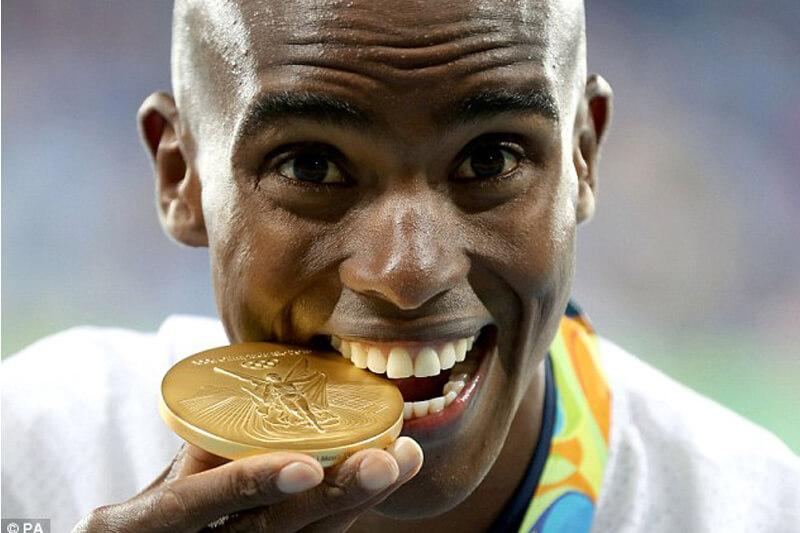
The Olympics have now come to a glorious end with a spectacular closing ceremony recently with more than 10,500 athletes from 205 different countries in Rio de Janeiro. The winning margins are very narrow at this cream level, and when all the other things are equal, the only difference between gold and silver will come down to what the athlete eats. You will never guess that the menu is far simple than what you think it would be. A team of 2500 was working around the clock to serve 60,000 meals a day, in the Athletes Village in Rio.
At this stage, the elite athletes are inclined to take a personalised access to their nutrition. They have their diets meticulously tested, prepared and usually underpinned by the advanced research.
–

–
However, the careful approach to food and diet taken by modern day Olympians is in stiff contrast to some of the earliest ancient Greek athletes. Let us consider the example of Charmis, the Spartan winner of the Olympic short sprint in 668BC, who is reported to have eaten a particular diet, which consists of dried figs throughout the games. On the other hand, other typical old Olympians lived easily on cheese and barley bread.
–
During the middle of the fifth century, ancient Greek trainer Pythagoras proposed the idea of eating meat into the diets of athletes. One of the first to include meat into his training diet was Dromeus of Stymhalos who was a middle distance runner. The meat was seriously considered as a nutritional strategy after he had two victories in the Dolichos, a long race, at both the Pythian games and Olympia. He also had three victories at Isthmian and five at Nemian games.
MODERN METHODS OF EATING
–

–
The first complete recording of dietary intakes during the modern Olympic games emerged with the advent of 1936 Berlin Games. When a study was conducted on the food consumed by the elite athletes and the diet charts they followed, it was found that most of the athletes dined on two steaks a meal or at times poultry, with almost half a kilogram of meat consumed daily. Three steaks, meat extract and eggs are the pre-event meals which are consumed by the athletes.The study also observed that other athletes would emphasise the significance of high carbohydrate consumption with the British eating large quantities of porridge and the Italians more of pasta. There are other reports which show that some athletes would eat diets which are very rich in carbohydrate. It counts to around 6700-7300 calories per day.
–

–
One of the most notable ways to improve endurance performance is by eating carbohydrates such as bread before a race.
Reasonably, this was the first sign of sport and event-specific nutrition. However, none of the studies associated food intake with the sporting event.Carbohydrates play a paramount role in an athlete’s life since it helps them to improve their endurance performance for different events which lasts for 60 to 90 minutes. However, during exercise, the level of carbohydrates in the body decreases. This is the reason why the elite endurance athletes are asked to consume carbohydrates 24 to 36 hours before the competition.
–

–
For a 65kg athlete, this would work out at 650 grams a day, and would be cast across multiple meals from a mixture of carbohydrate sources which includes bread, rice, pasta or potatoes.
Taking on carbs during an event can also develop cognitive, physical and technical features of performance. Drinking a carbohydrate solution and spitting it out in the events enduring between 30 and 60 minutes may be sufficient enough to keep the body running that little bit longer.
In relation to exercise training, it is now thought important periods of decreased carbohydrate and elevated protein consumption may be more beneficial.
–

–
EVENT-SPECIFIC DIETS
With the help of nutritional strategy, events with greater exercise intensities and small durations such as track sprint cycling, can be enhanced, for the modern athletes. As a nutritional supplement, the athletes often take the naturally occurring amino acid beta-alanine. This is because it can improve high-intensity exercise by adjusting the muscle pH which typically drops during this type of training. A reduction in muscle pH is a significant contributor to muscle fatigue. With the help of beta-alanine, it holds this fatigue from occurring so fast. Beetroot juice, during the recent study, has proved to have performance enhancing effects. Drinking it before (upto 2.5 hours) and after may increase exercise capability by reducing the amount of oxygen used in training. There is certain other research which has found that probiotics including kefir could be advantageous for athletes by improving the immune system.
–

–
Particular performance nutrition can also help to stop illness by contributing the correct amount of macronutrients and energy to meet the energy needs of exercising. It also prevents fatigue. Research suggests that both probiotic and prebiotics might help to enhance the immune system.
They assist in reducing the number of upper respiratory tract diseases during a winter period of training when these typical kinds of infections are found common. Food has always been considered as fundamental to performance since the ancient Greece.
–

–
Comparing the data collected, it clearly shows that performance nutrition can be the difference between “gold” and “silver”. This is what makes the athletes decide carefully about what they are putting into their bodies. Because after all, the saying goes, let food be thy medicine and medicine be thy food. Keep “track” of what you eat and let the “track” be yours!